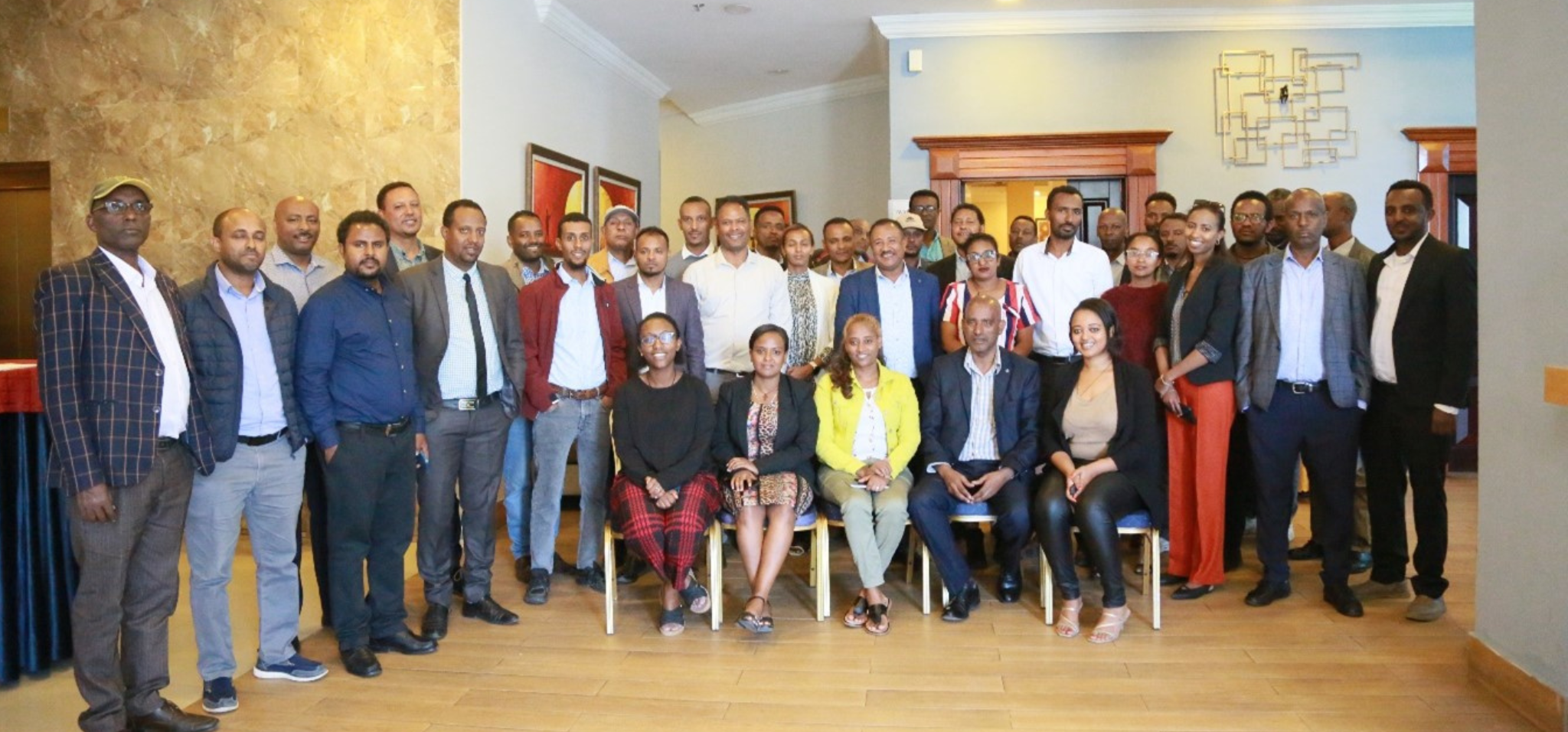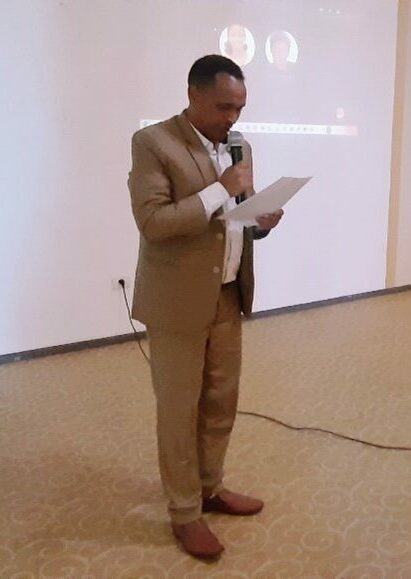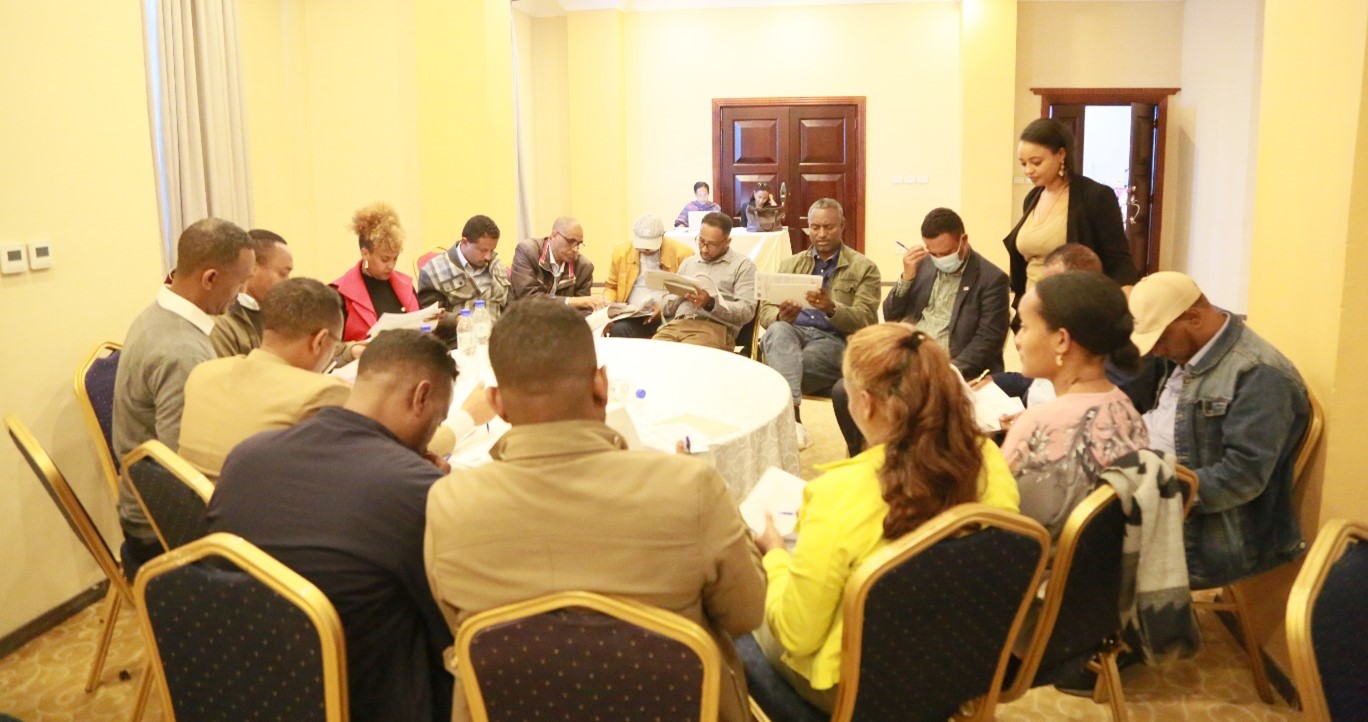
Authors: Yodit Balcha, Meron Teferi Taye, Yonas Getaneh, and Wuletawu Abera (Alliance Bioversity International - CIAT, CGIAR Initiative on NEXUS Gains). This blog was originally published in the Alliance Bioversity International - CIAT website.
Six years modeling sustainable food systems
In Ethiopia’s Tana-Beles region, water, energy, food and ecosystems (WEFE) are tightly interconnected, making a nexus approach highly relevant. Through the CGIAR Initiative on NEXUS Gains, researchers from the Alliance of Bioversity-CIAT and the International Water Management Institute (IWMI) have been working on nexus tools, including the FABLE calculator and scenario tool at the national level, and the integrated water storage diagnostic in the Tana-Beles, a sub-basin of the Blue Nile River Basin.
In December 2023, NEXUS Gains held a two-day stakeholder consultation workshop in Addis Ababa, bringing together representatives from the WEFE sectors, the health sector, as well as the Prime Minister’s Office and Policy and Planning, to discuss the importance of the nexus approach in managing natural resources in the sub-basin and beyond. This approach supports progress towards Ethiopia’s Sustainable Development Goal (SDG) targets by transitioning to a greener and more inclusive economy.
Supporting the coordination of water resources management
In his opening remarks, Michael Birhane, Head of the Water Resources and GIS Desk at the Ministry of Water and Energy, highlighted the importance of the Tana-Beles as a critical water resource. The Government of Ethiopia has identified the sub-basin as an economic “growth corridor” and invested in large water infrastructures, such as the Koga and Ribb irrigation dams, to fuel socioeconomic development by providing water for irrigation, drinking, and hydropower generation.
He also noted the challenges that the sub-basin is facing due to climate change, such as reduced water flow and decreased water availability for irrigation, which has led to food shortages, loss of biodiversity, and environmental degradation. He explained that the WEFE nexus is particularly complex in Tana-Beles, and the government has made efforts to develop enabling institutions and investments for integrated planning, management, and development in the region.
Matthew McCartney, Research Group Leader at IWMI and NEXUS Gains Initiative Lead, said that the initiative aims to support key basin stakeholders to address the challenges the sub-basin is facing, grow synergies, and reduce trade-offs toward achieving the SDGs through the transformation of WEFE systems. NEXUS Gains additionally supports policy analysis at the national level through identifying entry points for more sustainable development.
 Michael Birhane, Ministry of Water and Energy, Ethiopia, providing his remarks. Photo: Yodit Balcha.
Michael Birhane, Ministry of Water and Energy, Ethiopia, providing his remarks. Photo: Yodit Balcha.
Application of nexus tools to support coherence in policy formulation
In collaboration with the Food, Agriculture, Biodiversity, Land-Use, and Energy (FABLE) Consortium’s Ethiopia Country Team, NEXUS Gains researchers have leveraged the FABLE calculator as a national-level nexus analysis tool. The calculator’s modeling revealed promising intersections between Ethiopia’s food security and ecosystem restoration development goals. Most notably, the team’s analyses suggest that the efficient allocation of available land and water resources holds the potential to address malnutrition and food insecurity while achieving ambitious goals for forest restoration and biodiversity conservation.
Workshop participants from government institutions, women’s associations, universities, and non-governmental organizations discussed the FABLE components, targets, pathway assumptions, and ways forward to create more synergetic and coordinated national interventions. They endorsed the comprehensive and integrated approach of development goal evaluation, particularly the focus on bridging diverging sectoral policies and connecting previously disconnected goals. They also suggested that closer stakeholder engagement in the evaluation process could significantly improve the accuracy and reliability of data inputs and model outputs, and proposed including water as a separate component, given that it is an enabling factor for all other components.
 Stakeholder consultation workshop in Addis Ababa, Ethiopia. Photo: Mr Abiyot Assefa, Policy Studies Institute.
Stakeholder consultation workshop in Addis Ababa, Ethiopia. Photo: Mr Abiyot Assefa, Policy Studies Institute.
Integrated storage diagnostics and nexus issues
A meta-analysis of WEFE nexus issues in the Tana-Beles sub-basin indicated that there is a significant gap in the development of explicit and direct methods for collectively evaluating WEFE systems.
Participants emphasized the need for investment in water infrastructure to meet the growing water demands. This aligned with the integrated water storage diagnostics being conducted by NEXUS Gains. An analysis of various water storage types in the Tana-Beles sub-basin (i.e., Lake Tana, large dams, soils, aquifers, and wetlands) showed that each of these storage types has its own strengths and weaknesses in achieving water security and enhancing resilience. It is necessary to rethink how natural and gray storage systems, such as small and large reservoirs, can best be combined to improve water resource planning. Participants also highlighted the importance of comparing the active storage volume with the different water demands of the WEFE sectors. The storage gap assessment is an ongoing project that will quantify and show the relevance of investing in various types of storage options for a range of WEFE outcomes.
Yodit Balcha, Yonas Getaneh, and Wuletawu Abera are Researchers at the Alliance of Bioversity-CIAT, and members of the FABLE Ethiopia team; Meron Teferi Taye is a Researcher at IWMI.
This work was carried out under the CGIAR Initiative on NEXUS Gains, which is grateful for the support of CGIAR Trust Fund contributors: www.cgiar.org/funders.